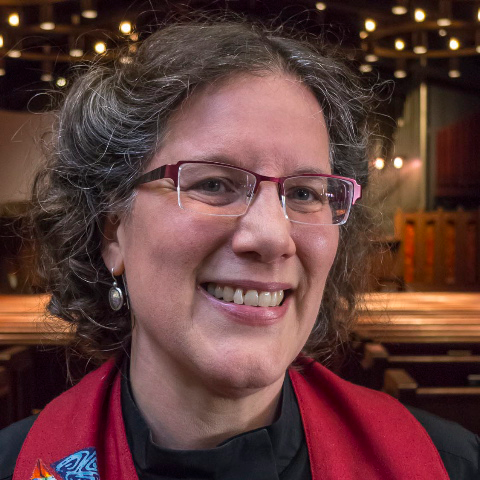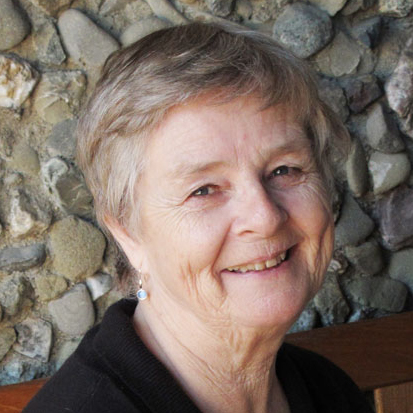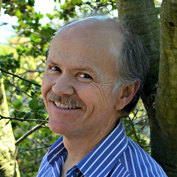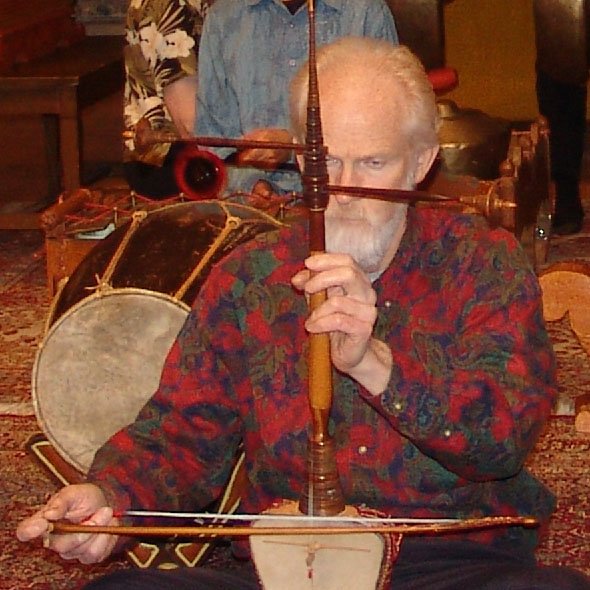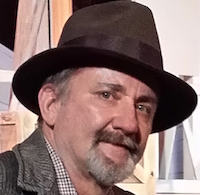{podcast_episode 144}
Reading
Unitarian Universalism draws from many sources: personal experiences, wisdom from the world’s religions, humanist teachings, prophetic and poetic words from many cultures.
Today’s reading is from the Islamic Sufi poet Rumi.
Destruction Precedes Renewal
A man started to break up the earth with a spade.
A fool came and shouted at him, “Why are you ruining the soil?”
“You idiot!” The man cried.
“Go away and don’t bother me!”
Understand the difference between destruction and growth.
How could this soil become a rose garden or wheat field
Before it’s broken up and ruined and made ugly?
How could it become orchards and harvests and leaves and fruit
Before it is utterly destroyed and worn down?
Before you pierce an abscess with a knife
How can it heal and how can you regain your health? …
When a tailor cuts up a cloth, piece by piece,
Does anyone go up to him and strike him and say,
“Why have you torn up this beautiful satin;
What can I do with scraps of torn-up cloth?”
Each time that builders come to repair an old building
Don’t they begin by destroying what was there before?
Look at the carpenter or the blacksmith or the butcher;
With them too, you’ll find destruction precedes renewal.
If you don’t subject wheat to the grinding millstone
How will bread ever come to decorate your table?
The Soul of All: Teachings of the Sufi Mystics
Your origin was love. Love is your destination, your purpose.
Love is your nearest neighbor.
Love surrounds you.
So sing the Sufi mystics.
The last two Sunday services have considered
the teachings of Buddhism and Christianity.
Today we look at the teaching of the Sufi mystics.
Islam asserts there is no god but God.
Sufis, the mystics of Islam,
affirm there is nothing but God.
God, they say, is in all and all is in God.
Sufi poems are filled with the words Friend and Beloved.
Sometimes the words Ocean, Sky, Sun, Moon, Sweet Uncle,
Clever Rascal, Beautiful Companion are words for God.
For them, God, Truth, Beauty, Goodness, the Holy
is found in all religions, throughout cultures and traditions.
Theirs is an embrace of all paths to God.
Unitarian Universalism too draws from the world religions
and from direct experience of transcending mystery and wonder.
The seventh of our UU principles affirms
the interdependent web of all existence.
Sufi poets like Rumi, Hafiz, and Rabi’a see all beings, all life as connected, as one.
They call us to wake up to the joyful and glorious possibilities of being alive.
But you’ve got to wonder what if this spiritual awakening stuff is all a hoax, and all we get accomplished is to make our lives more peaceful and joyous?
The 8th century Sufi woman saint Rabi’a discovered in her solitary vigils that God’s love was at the core of the universe.Life offers the opportunity of steeping oneself in that love and reflecting it to others.
The purpose of life, according to Sufi mystics, is to be in relationship with the holy, to become one with all. We are all brothers and sisters, all connected, all one family.
Yet so much in our world, says “except for him,” “except for her,” “except for them.” Who gets arrested, who gets found guilty, who gets killed, who gets away, who fills the prisons, who is CEO of the corporation…
I want to act from the belief that we all are connected, depend on one another more than we know, that we are one body.
But sometimes in my heart, I seem to say,
“except for him,” “except for her” before I know it.
Sometimes my mind finds it hard to see someone’s worth and dignity.
And I find limits to how much I can do, how much I can help.
I do not love like I’m longing to love.
I sometimes say words that hurt.
It takes practice to stretch to open my mind and heart and hands.
It takes reminders and encouragement from others.
It takes a whole community, people here and beyond these walls,
to do all that needs to be done, to give all the love that needs to be given.
We create loving community in order to awaken compassion and service and action
wherever we are, to act for love and justice in the world…to experience joy!
What if you’re not feeling the love?
13th century poet Rumi says, sometimes you must feel like all is destroyed in order to grow. You might have to feel broken, worn down, torn.
You question the loyalty and love of someone you thought you knew and trusted.
Your job feels like work in the mines – cut off from light and air…soul depleting.
You always wanted a child. Can this same squirming, wailing, unable-to-be-calmed kid be that sweet baby?
You are bored out of your mind and thought life held for you something better.
You want time just with your spouse and you finally get it and so quickly an argument begins, one you both seem to lose.
You keep making these promises to yourself to stop a bad habit and keep returning to it again and again.
Chemo and radiation make you sick.
And it’s a gamble. You don’t know if you’ll ever feel normal again.
You sweet child gets a diagnosis, your parent suffers, your lover leaves.
You wake in the night, toss and turn.
Who are you? Who are your friends? What’s it all about?
Rabi’a grew up in a part of ancient Mesopotamia that is now Iraq.
When Rabi’a was a child, she was separated from her parents.
She wandered homeless and was stolen and sold into slavery.
She was both physically and sexually abused.
At the age of 50, she was given her freedom and spent the remaining years of her life
devoted to mediation and prayer.
She writes, “’Show me where it hurts’, God said,
and every cell in my body burst into tears before His tender eyes.”
She says “My body is covered with wounds this world made.”
And she writes, “Whatever happens is bringing us closer to God.”
Believing whatever happens brings us closer to God is a challenge.
Wouldn’t you like to believe it is possible?
Maybe if only we could get a bigger perspective, a wider view,
we would see that everything and all,
even the deepest loss and suffering,
even the smallest frustration and annoyance, is bringing us closer to God.
Rumi was born in what is now Afghanistan.
His family fled invading armies,
and eventually immigrated to Konya, in Eastern Turkey.
His father died when Rumi was 20.
Rumi became the leader of the community,
teaching theology, poetry, music, cooking, gardening, and animal husbandry,
all practices considered related to the growth of the Soul.
The 13 century in the Near East was a time of political turmoil,
war and the Christian crusades.
We may think of Rumi as dwelling in the ecstatic, but he was also a practical worker
in the world and no stranger to its hardships, suffering, and injustices.
Have you seen shows like House of Cards
where the government, journalism, non-profits are all ensnarled in corruption?
Each episode of House of Cards begins with night falling on Washington D.C.
Shadows fall across the Washington monuments,
and the last shot is of an oil barrel contaminating the river.
The show is so well done and convincing.
You can leave the show thinking everything is sinister,
cutthroat, cold, calculating, criminal.
It is so cynical, so life-denying.
But I wouldn’t miss an episode!
If you haven’t seen the show, you’ve seen and read the news.
It can be overwhelming, beyond our comprehension, our understanding.
Turn to Rumi, turn to the Sufi poets, they won’t let you give-up.
They keep calling us to splendor and glory.
If their celebration of the sacredness of human life and the holiness of the earth
can inspire them to courage and compassion,
maybe such a celebration of life can inspire us to keep going.
Sometimes out of anguish, and brokenness, this turned up soil, new life stirs.
Within us there’s a seed, potential for orchards hung with fruit.
Suffering, while never welcome, can connect us with all who suffer.
In your vulnerability, you know how fragile all life is. How precious.
Your tenderness is strength.
Your emptiness, your longing for something more
reminds you that there is something more.
There is beauty, remarkable, glorious beauty.
You get broken open.
You’re like wheat subjected to the grinding millstone
and can become bread to decorate the table.
You can nourish, bring health and goodness.
You can grow.
You can find your power, not to be at the top of the heap,
but to serve yourself and others.
Rabia says something was missing for her so she went searching.
“The cure for me,” she writes, “was…beauty,
the remedy—for me was to love.”
“Beauty,” she says, “is my teacher
helping me to know God cares for me.”
Your cure may be beauty, the remedy–for you to love.
In Sufi poetry, the one melts into all.
Recently when a member was dying, we spoke to her,
“You’ve created and tended and loved beauty,
now may you be one with that beauty.
You love and are loved;
now may love hold you.
May you continue in that love always.”
In Rumi’s poetry a gnat becomes lost in the wind,
a chickpea disappears into the flavor of the soup,
a dead mule decays into a salt flat,
the dewdrop dissolves into the ocean.
Rumi says, “What you seek is seeking you.”
Rumi seeks our union with God.
And God is luring us with beauty, with music, with poetry.
In Rumi’s poetry, not only does the human become God,
God becomes human…the universal is known in the particular.
Rumi says,“Friend, our closeness is this:
Anywhere you put your foot
feel me in the firmness under you.”
The Beloved is right where you are now.
Rumi invites us to dissolve into the all and then return
to tend specific needs and people.
The grand vision and the daily street life always mingle.
Rabi’a says her heart was not large enough to care for the earth
so the sky gave her its heart.
She says it helps to put her hands on a pot, on a broom, in a wash pail.
It helps to put yourself to work.
Serve the meal at the soup kitchen,
get yourself to a grade school and read to kids,
show up to the vigil at the jail and make a big noise
so the people inside know they are not forgotten.
Give the benefit of the doubt to your mate, your child, your parent.
Make peace in your home, in your committee.
The story goes that Rabi’a walked through town
carrying a torch in one hand and a bucket of water in the other.
She said she was going to set fire to heaven
and put out the flames of hell.
And sometimes WE think our aims are lofty and unrealistic!!
Sufis will do almost anything to help us wake up.
Rumi urges, “Come, take a pickaxe
And break apart your stony self…
Batter down the door…
Unstop the wine jar…
Smash the jug
and come to the river” to the source, to all that is, to the Beloved, to God.
Your origin was love;
it is your destination, your purpose, your nearest neighbor.
Love surrounds you now.
The story is not over. There’s more for you.
You have so much love to give.
What will you do with your love so it will multiply?
What will you do with your love and when will you start?
Copyright © 2013, Revs. Barbara and Bill Hamilton-Holway. All Rights Reserved







